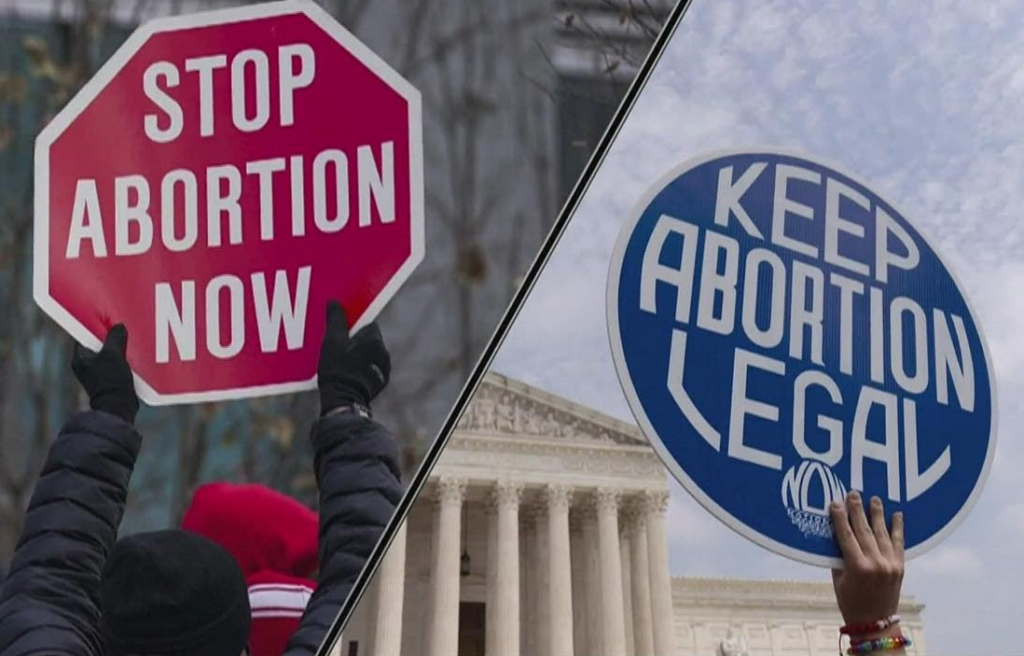
As we approach another United States presidential and congressional election, abortion is a topic that’s heavily debated these days. A couple years ago, I heavily researched the topic of the morality of abortion, because I was no longer convinced that the simplistic treatment I’d been given by my evangelical upbringing was trustworthy. So in July 2022 I spent quite some time carefully considering abortion’s morality and how it’s addressed (and how it’s not addressed) by the Bible, and I documented my thoughts in A Personal Framework for the Morality of Abortion.
The Dobbs decision by the Supreme Court that ended Roe v. Wade upended the previously-stable state of affairs shortly before I wrote that paper. A couple years have passed, and the effects of that upheaval have had some time to settle out and for the 50 states to begin to determine what they’ll do without a constitutional mandate. So in this more recent season, as politicians are increasingly pumping up their faithful constituents over the topic, I realized that I needed to understand the practical aspects of abortion politics: how we as a nation might collectively and effectively begin to actually reduce the number of abortions performed each year – because, regardless of the superheated rhetoric, it’s clear to me that both sides want to reduce abortion – but they differ sharply on HOW to go about it. Each political party has its talking points, but I’d never carefully dug into the real data behind all the propaganda.
So in August and September 2024, I spent some time on the matter, and wrote a new paper, Studies on the Best Ways to Reduce Abortions. Unlike the question of morality, this carefully-sourced paper focuses on the deeply practical: what actually works?
I hope these two papers prove useful to you.

I appreciate the honesty shown here, as opposed to the rhetoric coming from both pro-choice and pro-life camps.
No, not all pro-life activists have any desire to control women! Our pro-life concern for human lives doesn’t end at birth–not for all pro-lifers, anyway. Among some, there is a sincere desire to save and even better humans lives, including those of mothers, and of those who experience miscarriages, ectopic pregnancies, rape, etc.
But the exaggerations of pro-lifers are no better. No one is performing post-birth abortions, just as women who go through eight and a half months of pregnancy aren’t waking up one day and suddenly thinking, “You know, maybe I don’t want this child. Today is a great day to rid myself of this burden!” More importantly from a statistical perspective, it would be a lie to claim that state abortion bans have resulted in equal or better care for women and girls. Instead, they have directly and indirectly caused worse health outcomes.
Read that again. “Worse health outcomes” is euphemistic. It means women and girls becoming barren, experiencing unneeded pain and even premature deaths. It means existing children won’t have a mother. Husbands and boyfriends won’t have a partner. Parents will lose daughters.
And all of this will fall disproportionately upon people of color, the poor, the uneducated, etc. Suburban whites will be ok, though, so it doesn’t matter, right? (Wrong!)
The full impact of recent changes in abortion laws remains to be seen. States are still deciding, and hopefully some will even reconsider. For now, however, the Guttmacher data is not encouraging. Even for those so callous as to focus solely on fetuses, it’s not encouraging. As the composition of the Supreme Court gradually became more conservative, abortion spiked for the first time since the 1970s. And so far, the Dobbs decision and state law changes appear to have continued that trend.
On top of that, we all should be concerned that maternal death rates and “poor health outcomes” among pregnant women are spiking. The stats for OB-GYN doctors are also troubling, suggesting that things will get even worse. We may not be living in The Handmaid’s Tale just yet, but we’re trending that way.
Lord God, help us.
Thanks for the thoughts. It’s hard to have decent and gracious discussions around this topic, to be sure. But they’re deeply needed.